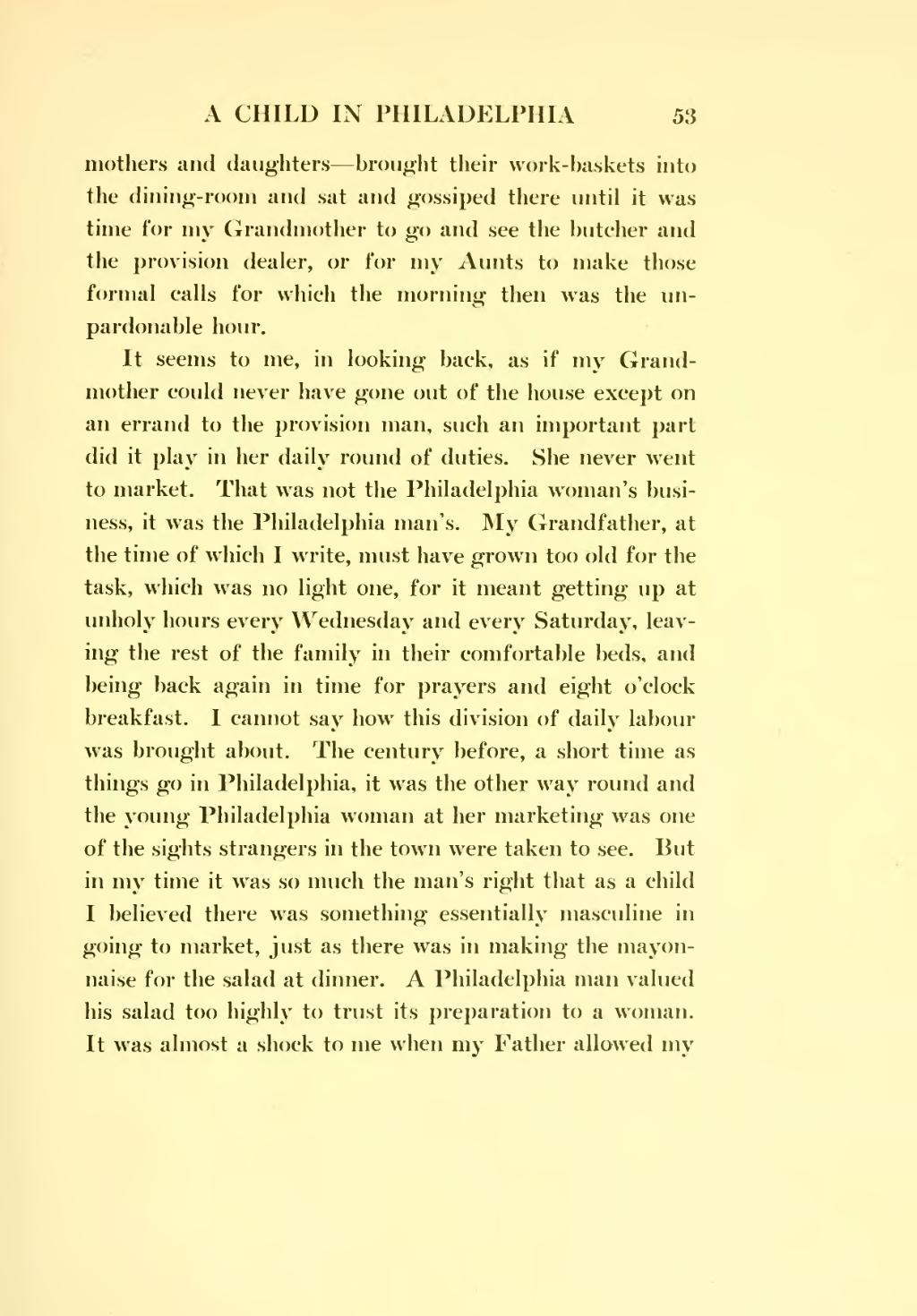mothers and daughters—brought their work-baskets into the dining-room and sat and gossiped there until it was time for my Grandmother to go and see the butcher and the provision dealer, or for my Aunts to make those formal calls for which the morning then was the unpardonable hour.
It seems to me, in looking back, as if my Grandmother could never have gone out of the house except on an errand to the provision man, such an important part did it play in her daily round of duties. She never went to market. That was not the Philadelphia woman's business, it was the Philadelphia man's. My Grandfather, at the time of which I write, must have grown too old for the task, which was no light one, for it meant getting up at unholy hours every Wednesday and every Saturday, leaving the rest of the family in their comfortable beds, and being back again in time for prayers and eight o'clock breakfast. I cannot say how this division of daily labour was brought about. The century before, a short time as things go in Philadelphia, it was the other way round and the young Philadelphia woman at her marketing was one of the sights strangers in the town were taken to see. But in my time it was so much the man's right that as a child I believed there was something essentially masculine in going to market, just as there was in making the mayonnaise for the salad at dinner. A Philadelphia man valued his salad too highly to trust its preparation to a woman. It was almost a shock to me when my Father allowed my
